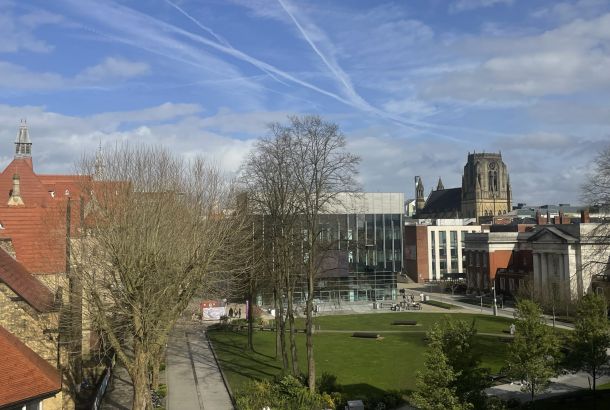We should not give in to ‘alternative facts’
On Meet the Press, 22nd January, presenter Chuck Todd questioned counselor Kellyanne Conway about the administration’s claims that Trump’s inauguration crowds were the largest ever. The conversation was spirited and evasive on Conway’s part. Todd pressed, demanding an answer as to “answer the question of why the president asked the White House press secretary to come out in front of the podium for the first time and utter a falsehood?” At this point, and with a gulp as if she was swallowing back vomit, Conway said that the administration had simply presented “alternative facts.”
The phrase has stuck. Since its conception in that fateful interview, the spectre of the alternative fact has become a mainstay of modern life. Did you make an unverifiable claim on a large public platform? Invoke an alternative fact. Unable to prove that three million voters were shipped into New Hampshire for electoral fraud? That fact was alternative. Lose a bet that you could down a pint in under three seconds? It was alternative beer.
Unfortunately, the “alternative fact” excuse seems to perfectly crystallise the new world of ‘post-truth’ politics. The phrase embodies all the contradictions and linguistic contortion of the Trump presidency, as well as the general lack of social consensus of objective fact. It seems to be something from satire rather than a serious statement from a Washington representative. It’s so fitting that it makes one wonder if it was intentional. The term even has its own Wikipedia page (“Part of a series on Misinformation and Disinformation”).
And this is in the wake of 2016, which has been hailed as ‘the year that facts died’. Indeed, the Oxford English Dictionary chose ‘post-truth’ as its word of the year, due to the increasing reliance on how true something ‘feels’ rather than whether or not its provable. As Stephen Colbert aptly summarised it a decade ago in his satirical White House Correspondents Dinner, “We go straight from the gut, because that’s where the truth lies.”
Unsurprisingly, sales of George Orwell’s classic dystopian novel Nineteen Eighty-Four have rocketed in the wake of the Newspeak-esque coinage; the novel reached #6 on Amazon’s best seller list. Twitter users have been quoting eerily apt extracts from the book: “If all other accepted the lie which the Party imposed – if all records told the same tale – then the lie passed into history and became truth.”
The alternative fact looms large not only in the US, where the President claims to have had the largest electoral college winning margin since Ronald Reagan (which was immediately shot down by a reporter), but also on our side of the pond. You may remember the infamous Leave-campaign bus, with a £350 million per week promise of funds for the NHS, a claim that seems to hold no water and shows no sign of materialising.
The problem lies in part with the deluge of information we face everyday. While the unprecedented access to data is no bad thing in itself, the sheer volume is overwhelming and clearly leads to conflict about the ‘facts’ of reality. On The New York Times website, William Davies observed that, “There are too many sources, too many methods, with varying levels of credibility, depending on who funded a given study and how the eye-catching number was selected.” Furthermore, he noted that it’s possible to have almost any fact endorsed by an ‘expert’ or other institution.
However, the situation is not as bleak as it may seem. Luckily for us, there is an objective reality which no amount of falsehood can alter. Take one of President Trump’s central campaign promises, the border wall with Mexico. Before his victory at the election, Trump estimated that the wall would cost around $8 billion, the number creeping up over the course of the campaign to around $12 billion. But, the actual cost would be around $25 billion for raw materials alone, excluding labour and maintenance. In addition, the US government has attempted previously to build border-walls, which have failed due to the difficulty of violating private property and burial ground rights. This particular issue was discussed in great detail and with much hilarity by John Oliver on Last Week Tonight.
The wall then, like the inflated inauguration crowds or the elusive £350 million for the NHS, is contradicted by reality. What John Oliver does on his show is the kind of journalism we need: to take claims and facts and interrogate them not just in satire for comedy’s sake, but in the wider media.
We may not be able to enlighten the Trump administration about the nature of its lies, but for the sake of the world’s citizens, we have a duty to stand by principles of truth. We should not let the demonstrable lies of others lead us to abandon fact. We should not allow post-truth politics and alternative facts to hijack meaningful conversations. As the above-mentioned quote from Nineteen Eighty-Four goes, the lie only passes into truth if everyone believes it. It is critical, then, that we resist falsehood and pursue truth.







